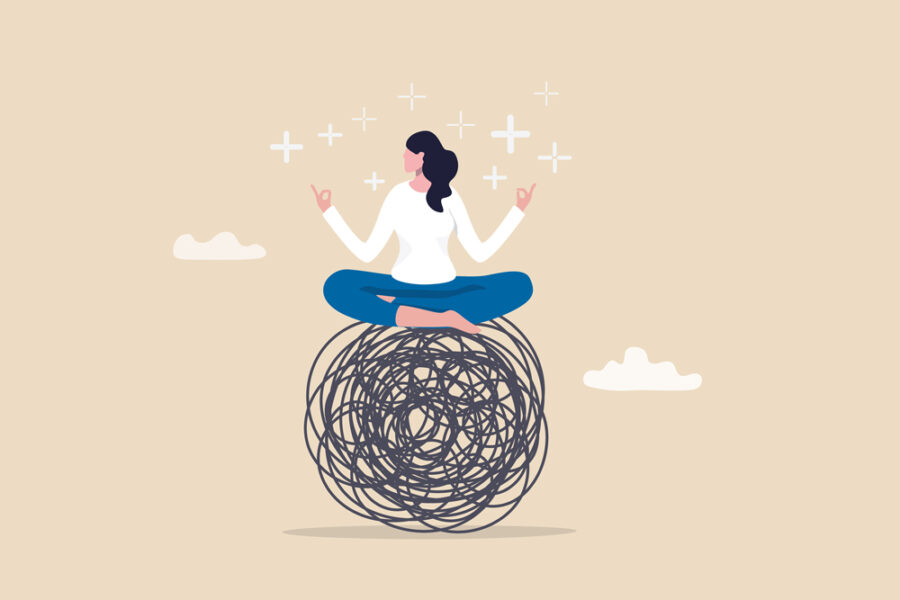Meditation for Anxiety: What’s in it for me?
The Transformative Benefits of Meditation for Anxiety
Introduction: We live in a fast-paced world that can take a toll on our mental health. As a result, many people feel that anxiety is like a shadow, following them everywhere they go. Yet, we do not have to be powerless to the impact of anxiety in our lives. Mindfulness meditation is an evidence-based practice with profound benefits in alleviating anxiety. Let’s take a deeper dive into the benefits of this practice tool.
-
Mindfulness in the Present Moment: Like a shaken snow globe, our mind is often clouded. Thoughts of the past, and plans for the future. It never ends. Meditation can support our ability to stay present. Slow down. See our thoughts without getting bullied by them. Meditation invites us to connect with the present moment. It can help you break the cycle of anxious rumination about what may happen next, next week, or 2 months from now. Grounded in the present moment, our minds and bodies can settle and find perspective.
-
Reduced Stress Response: Our nervous system has two branches. The sympathetic branch controls our fight-flight-freeze response. It activates you and prepares you for threats. The parasympathetic branch helps us slow down, and it grounds us again. Meditation practice can help strengthen our parasympathetic “muscle”. It can help reduce the production of stress hormones. This, in turn, helps reduce the physical symptoms of anxiety, such as a racing heart or tense muscles.
-
Cultivation of Emotional Resilience: React or respond. These are your choices when faced with challenges in your life. Reactivity suggests immediate action or getting lost in our emotions. Our emotions get in the driver’s seat and start to take us for a ride. Responsiveness means we have hit the “pause button”. This gives our minds and emotions time to communicate. Time to find a more measured response. We call this “non-reactive awareness”. This is the source of resiliency. This can buffer you from the overwhelm of anxiety.
-
Improved Cognitive Function: Anxiety often clouds our judgment and impairs cognitive function. Research has demonstrated that meditation can enhance attention, concentration, and even memory. As these abilities get stronger, you may be better equipped to manage anxiety.
-
Enhanced Self-Awareness: Self-awareness arises out of our ability to stay present. The more we can sit with our own experience, the less power it has over us. Meditation promotes self-awareness by encouraging self-reflection. Self-awareness promotes more effective coping strategies for anxiety. It enhances our ability to stay with our anxiety, rather than engaging in avoidance.
-
Improved Sleep Quality: Anxiety often disrupts sleep patterns. When the distractions of the day fade away, our mind often goes into overdrive. We judge our actions during the day or think about what tomorrow will bring. Meditation can enhance sleep quality by reducing mental chatter and promoting relaxation. A more restful and restorative sleep helps us prepare for the challenges of the next day.
-
Positive Changes in Brain Structure: Neuroplasticity speaks to the brain’s ability to change. The brain can adapt and reorganize through repetitive behaviors. As we meditate on a regular basis, we provide the needed “reps” the brain needs to improve emotion regulation and self-control. This can lead to lasting improvements in managing anxiety.
Conclusion: The benefits of meditation have been well documented through scientific studies. Daily-ish meditation (let’s shoot for at least 5 days a week), can help you move towards a calmer, more centered self. Embrace the power of meditation to help reduce your anxiety and improve your life!

